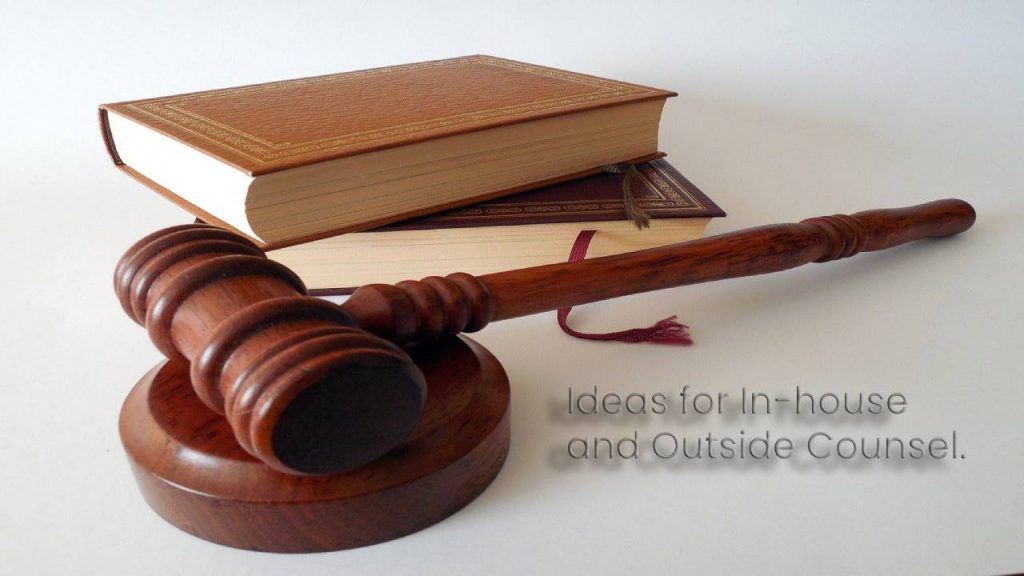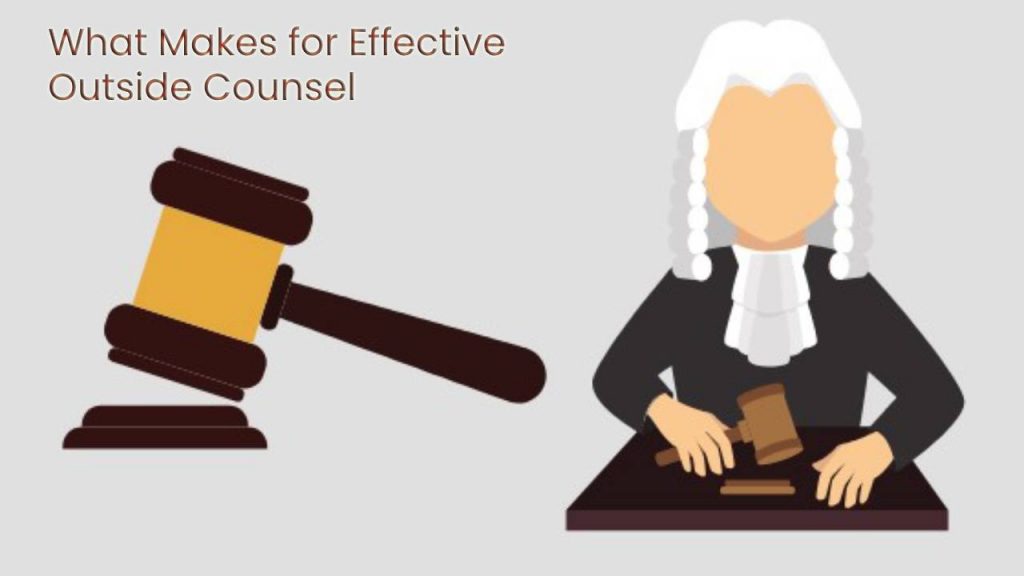As the strength of US patents has waned over the past decade. More companies are seeking higher quality patents from their outside counsel. In taking a closer look at the inconsistencies in work product that often arise. From less-than-ideal in-house and outside counsel relationships, in-house counselors have started brainstorming ways to improve the foundation of this working and attorney client relationship.

This examination emerged into a webinar conversation between Gene Quinn, CEO/President of IP Watchdog and Ben Brown. Assistant General Counsel, Intellectual Property at Analog Devices. Ben wanted to find creative solutions to improve his working relationship with outside counsel, and from a big picture, uncover what a good relationship between the two parties looks like. Gene and Ben both agree that there is a lot of room for improvement in how in house counsel interfaces with outside counsel.
The webinar focused on uncovering the attributes that make up good outside counsel and how attorney relationships can improve. Both Gene and Benn agreed that chief among these attributes is good communication and that the biggest difficulty with the outside counsel/in house counsel relationship is not communicating with one another.
What are the underlying complications in the in-house and outside counsel relationship?
A 2012 American Bar Association survey of in-house counsel found that poor communication is the most cited reason. That outside counsel is replaced. Gene and Ben noted that surprises and errors, especially those that are high visibility, upset internal stakeholders and demonstrate poor management. Basically, when the relationship between in-house and outside counsel is strained, it makes in-house look bad while making his or her life hard.
J.D Houvener, a San Francisco patent attorney, says that in an IP Law Firm, “In-house employees, patent agents, and inside attorneys function in a role that’s like an IP manager. They manage a team of outside patent attorneys that do the work of drafting claims, submitting applications, speaking with the inventors, etc. The in-house attorneys are more big picture and oversight while the outside counselors are more hands-on. Often, there is a disconnect in terms of expectations, and crucial information slips through the tracks.”

What makes for effective outside counsel?
The most critical quality of effective outside counsel is the ability to communicate information clearly and concisely. The best outside counsel will care about the in-house firm and its clients, and know what is expected of him or her. As the leader in writing claims and submitting provisional patent applications, ideal outside counsel will be creative and think outside the box to find new ways to solve problems and improve existing methodology. Basically, an effective outside counsel will look good while making your life easy.
Houvener expands on this and says that in his ideal outside counsel. He seeks “someone that can do a lot of good work without a lot of supervision. The person should not need a lot of oversight, but be responsive and accountable. He or she knows your needs without having to ask and sees the bigger picture.”
Most importantly, outside counsel often communicates directly with the client and is seen as the face of the relationship. The best outside counsel can give legal advice that the client can understand and in the process allowing the client to formulate their own questions to ask a patent attorney.
Objective framework for evaluating outside counsel performance
Specific performance metrics that should be used are:
-
- Speed: timeliness, ability to meet deadlines, response time, work product turnover.
- Spend: staying within budget, planning, and forecasting, understanding spend rate.
- Feedback: client surveys, having in-house counsel measuring product quality.
- Work product quality: use specific standards and guidelines to grade consistently.
Best practices for outside counsel to improve their relationships with clients and grow their business.
Both sides should communicate clearly, concisely and effectively with one another. Use short emails and get straight to the point on calls without coming across as terse. Avoid legalese and confusing terms this is especially important when outside counsel communicates with inventors and clients.
Obtain feedback from one another and from clients to determine the most crucial areas of improvement. This can be done via an email survey for each client after a big project is completed.
Lastly, in evaluating outside counsel performance, fuse the speed, spend, and quality performance metrics. To get a big picture view of what is working and what is not working.
